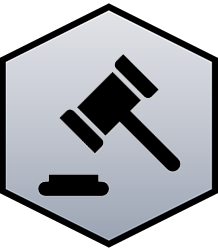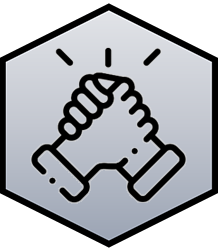Government
Court FAQ
Court Expectations
- Weapons of any kind are not permitted. Please contact the court security officer if you need to safely secure weapons before entering the building.
- You will be subject to a security check prior to entering the courtroom; therefore, plan your arrival time accordingly so you are not late for court.
- Please silence all electronic devices.
- Remove your hats.
- Do not bring food or drinks into the courtroom.
- You must obtain prior permission from the court if you want to video/audio record court proceedings.
Infractions
What is an infraction?
Infractions are non-criminal violations of the law and include speeding, parking, and some land use code violations. Previously, many traffic and criminal violations were considered crimes, but in 1981 Washington joined a number of states in decriminalizing minor traffic offenses, which resulted in a major change in the way that courts deal with those offenses. Now, many traffic, parks, wildlife and fisheries offenses are considered infractions and are treated as civil cases.
What actions must be taken after receiving an infraction?
Start by reading the entire notice of infraction (ticket) front and back. A response must be filed with the court within fifteen (15) days of the date that the ticket was issued. This response can be payment of the penalty amount in full or a request for a mitigation or contested hearing. The purpose of a mitigation hearing is to explain the circumstances. The purpose of a contested hearing is to challenge the infraction. An infraction is not a crime; a warrant for arrest cannot be issued. However, failure to respond to the court within the fifteen (15) days or failure to appear at the hearing on the date set by the court can result in the suspension of your driver’s license and the collection of your fine being sent to a collection agency. If this occurs, your fine amount could double.
Criminal: Gross Misdemeanors/Misdemeanors
What is a misdemeanor and gross misdemeanor?
In general, gross misdemeanors are offenses punishable by up to 364 days in jail, and misdemeanors are those offenses punishable by up to ninety (90) days in jail. A fine may also be imposed. A fine for a misdemeanor may not exceed $1,000, and $5,000 for a gross misdemeanor. Certain crimes require a minimum stay in jail of one or more days. You will be informed of the possible consequences for the charge(s) at the time of your arraignment.
What should a person accused of a crime–not a traffic infraction –expect to happen?
All persons accused of any crime or criminal traffic offense that might result in a jail sentence have certain rights. The accused is advised of these rights at an arraignment which is generally the first appearance in court on the citation or charge. At that time, the Judge and/or prosecutor will inform the accused of the charge and explain it. Next, it will be confirmed that the accused understands his/her constitutional rights as explained in the court session and the accused is then advised of the possible penalties. No testimony is taken or evidence presented at arraignment. A courtesy attorney will be present at the arraignment hearing to assist all people accused of a criminal/criminal traffic offense(s). The accused may also hire a private attorney to provide legal assistance. If the accused is financially unable to hire a private attorney, a public defender will be appointed by the Municipal Court Judge.
Does the Tukwila Court perform weddings?
The Tukwila Municipal Court Judge does perform wedding ceremonies in the courtroom by appointment. Please view our Marriage Ceremonies page for more information.




